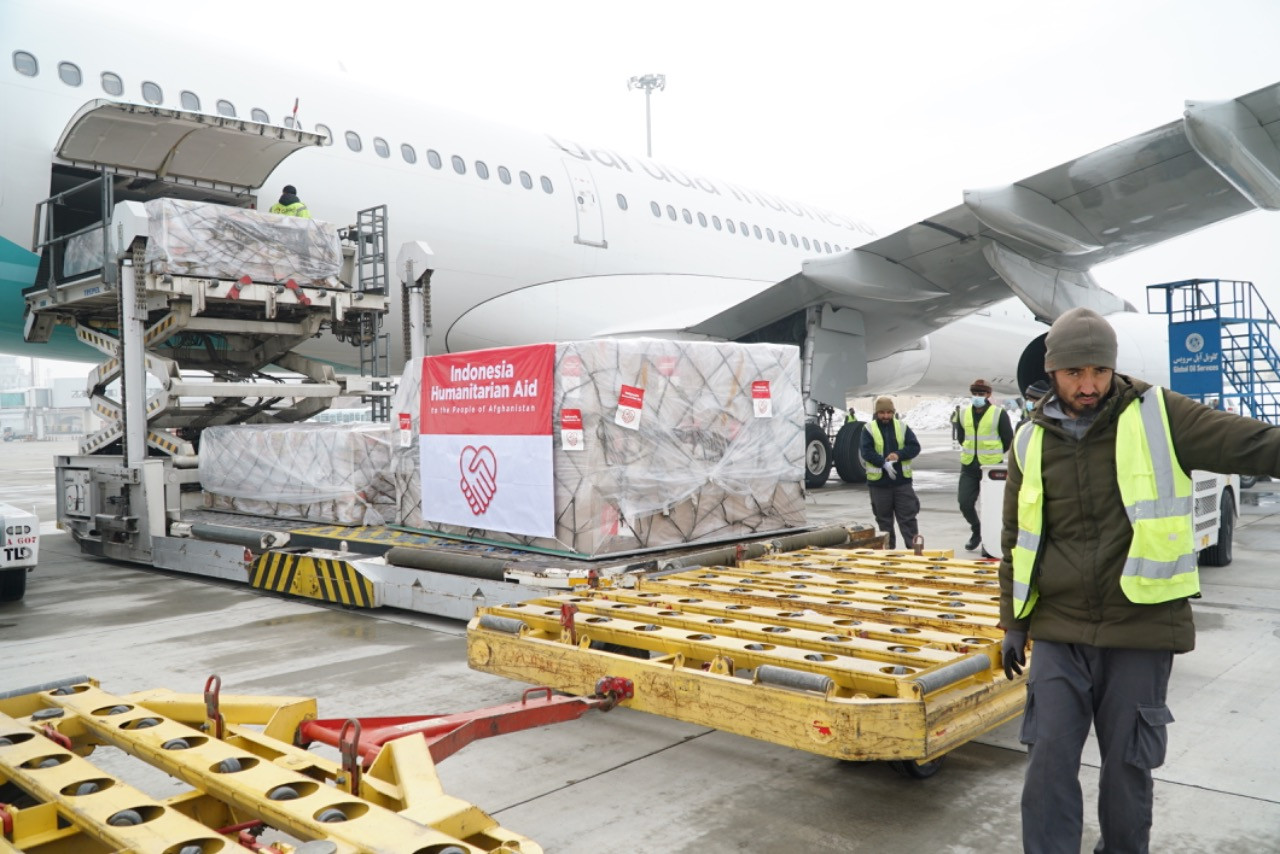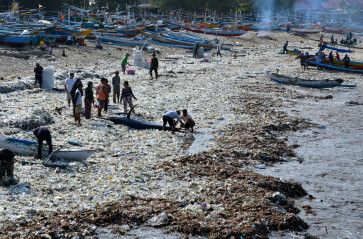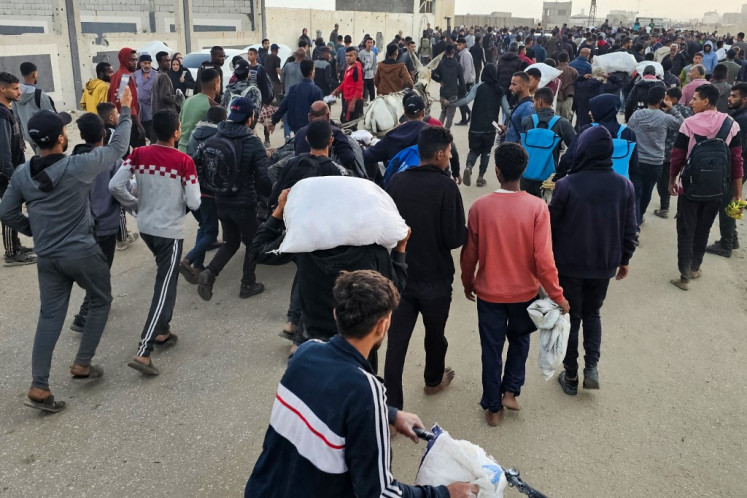RIʼs Taliban policy remains unchanged
Government to continue to give humanitarian aid.
Change text size
Gift Premium Articles
to Anyone

A
year after the Taliban takeover in Afghanistan, the Foreign Ministry’s diplomatic policy with Kabul remains unchanged, insisting that Indonesia continue to give humanitarian assistance to Afghan people for the time being.
The ministry underlined that they do not recognize the hard-line Islamist movement as legitimate rulers of the country.
In mid-August last year, the United States’ botched exit from Afghanistan gave room for militant Taliban forces to take over Kabul in a dramatic unfolding of events that led to the Islamic Emirate of Afghanistan.
The offensive is estimated to have caused at least 4,000 deaths and over 1,000 people missing as well as imposing severe restrictions on human rights.
One month after the event, when it was apparent that the Taliban had prevailed, Indonesia in a joint statement condemned the militant group, describing its actions as an “evil and calculated terrorist attack” and calling for “strengthened efforts to provide humanitarian assistance” in the country.
At the end of last year, the Foreign Ministry provided aid worth US$3 million for the Afghan people, of which $150,000 was allocated for humanitarian relief and the rest for supporting Kabul’s development -- particularly in the mining, health, education and women’s empowerment sectors.
A year later, after seemingly little to no progress, the Foreign Ministry insists that it will stick to its Afghanistan strategy, which prioritizes three issues: an inclusive government; respect for women, minorities and human rights; as well as the curbing of terrorist activities in the region.
“So far, Indonesia’s policy [for Afghanistan] is largely unchanged,” said the ministry’s spokesperson, Teuku Faizasyah at a press briefing on Thursday.
“Indeed, we have not been able to assess any significant progress on these three perimeters. It will take some time to change our position -- which has been underlined since last year -- and make a specific acknowledgment of the developments in Afghanistan,” said Faizasyah.
‘Intellectual foundations’
Though Indonesia’s Afghanistan strategy is seemingly far from being stern, Jakarta has paid particular attention to the developments in Kabul, playing a strategic role as being a “neutral” Muslim voice that could still earn the Taliban’s trust.
Moreover, Indonesia and Afghanistan have a long history of diplomatic relations, especially with both countries being part of the Organization of Islamic Cooperation (OIC).
Last year, Foreign Minister Retno LP Marsudi met with Taliban representatives to put pressure on the group for their previous promise to respect women’s rights.
Then, in March of this year, Retno met with Qatari Foreign Minister Muhammad bin Abdurrahman al-Thani to emphasize the two countries’ commitment to providing long-term humanitarian aid such as scholarships and vocational-training programs.
Teuku Rezasyah, an international relations expert from Padjadjaran University, said that at the core of Indonesia’s humanitarian aid is a somewhat hidden agenda to provide young Afghans with “intellectual foundations”, considering that a large proportion of the funds given are specifically meant for scholarships and education programs.
“This kind of diplomacy is not being picked up much, but many of the universities in Indonesia are specifically working to provide Afghan students with scholarships,” Rezasyah told The Jakarta Post on Friday.
Such underhanded strategies to help the Afghan people resist the Taliban’s unforgiving rule is a necessity, said Fitri Bintang Timur, an international relations researcher at the Centre for Strategic and International Studies (CSIS).
She recalled how Heifer International, a global non-profit organization, helped Afghan women be more self-reliant using farm animals.
“Families were given either chickens, cows or goats -- under the condition that the women in the family be involved in the training for breeding, producing eggs or milk to be sold,” Fitri explained.
“The training teaches mathematical and negotiation skills among others. Women can then slowly become self-reliant with this very underhanded feminist approach. It has to be stealthy lest the Taliban take notice.”
Though Indonesia has been consistently paying attention to Afghanistan, Rezasyah said an updated approach may be needed to better fit the situation after twelve months of non-progress.
As the leader of this year’s Group of Twenty (G20), Kabul may benefit from Jakarta holding a special session to discuss the crisis with Moscow and Washington -- the two parties with hefty histories of contributing to the current crisis.
And, if it decides to stick to its current strategy, then it ought to enhance its current mechanism, for instance by ensuring that all Afghan ethnicities are equally represented in its scholarship programs. Most importantly, the Afghan perspective needs to be at the center of any human-capacity development going forward, he added.
“The world and Indonesia need to understand that if they are trying to build Afghanistan, then they have to engage in a discourse, not take a one-sided approach.”









